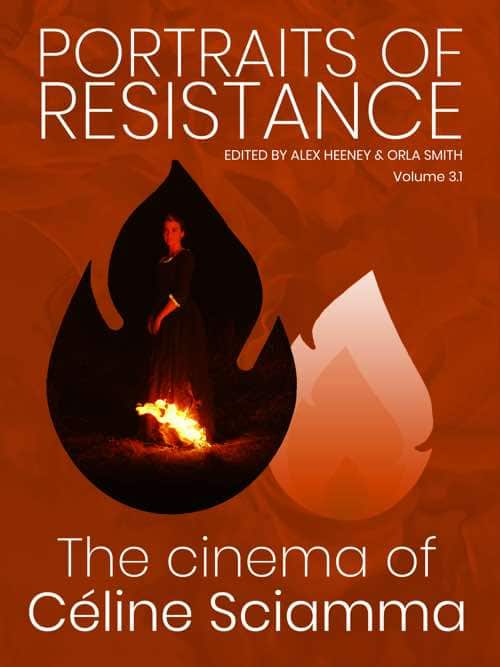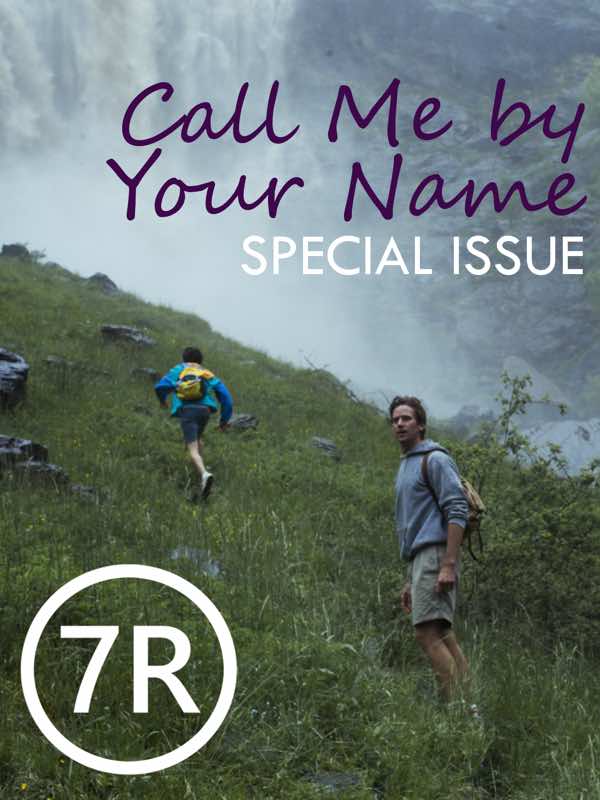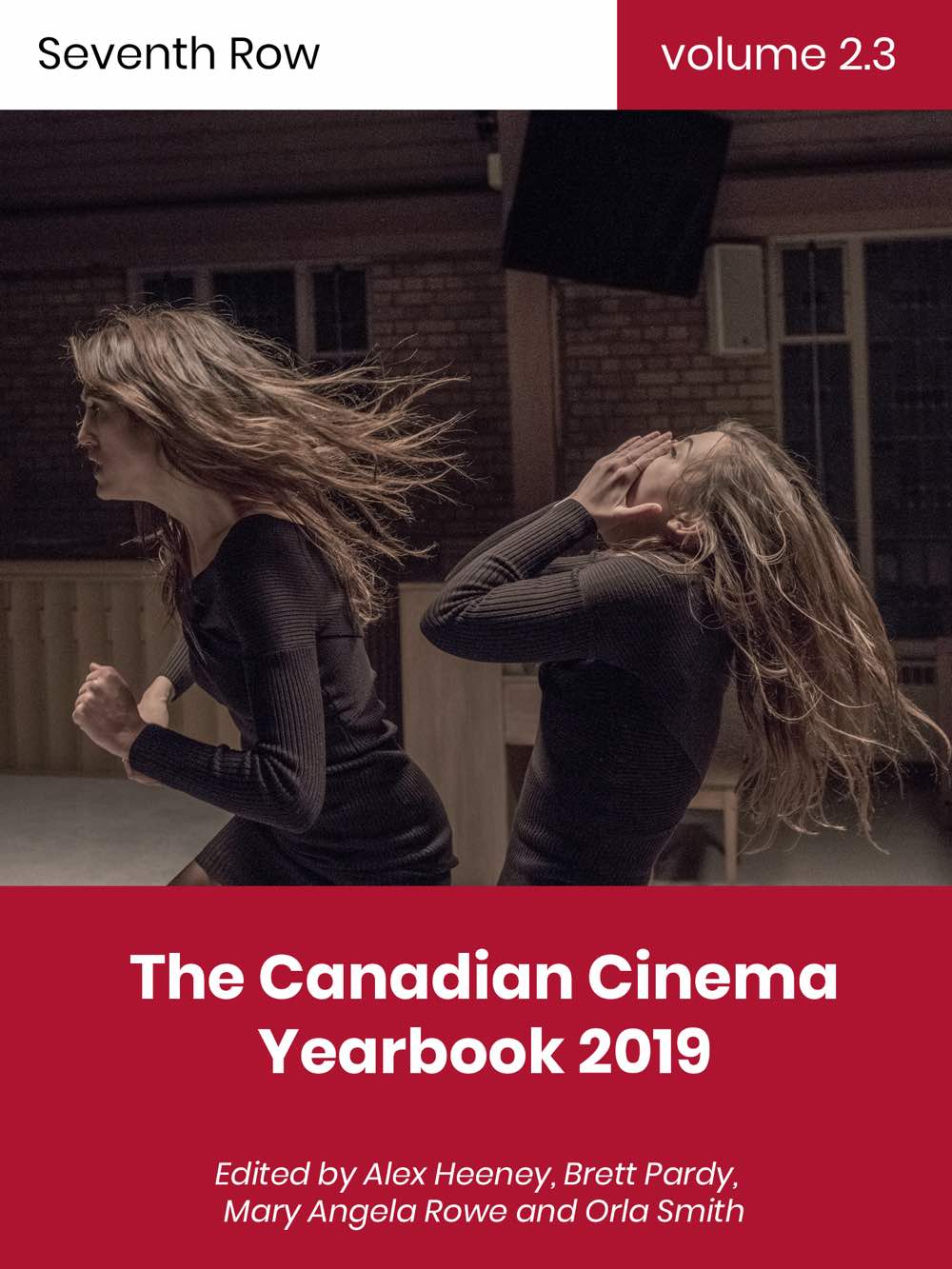Orla Smith runs down the best films of BFI Flare 2021 and the themes that they kept coming back to.
Discover one film you didn’t know you needed:
Not in the zeitgeist. Not pushed by streamers.
But still easy to find — and worth sitting with.
And a guide to help you do just that.
Europe’s largest LGBTQ+ film festival, BFI Flare, is being held virtually for the second time this year (films are available to stream until the end of the weekend). It’s been a really strong and diverse lineup: rom-coms (Kiss Me Before It Blows Up), documentaries (No Ordinary Man, Well Rounded), psychological thrillers (The Dose), character dramas (Boy Meets Boy, Sublet), and of course, plenty of coming-of-age films (My First Summer, Sweetheart, Valentina), a staple of queer cinema.
Films can be viewed virtually from anywhere in the UK, and individual tickets range from £5-10. You can also get a festival pass (equivalent to 10 tickets) for £70-90. Tickets are available to purchase here. With only a few days to go, of the films that still have tickets available, I’d encourage you to prioritise No Ordinary Man, with Sublet just behind. However, any of the films below are worth your time and money.
Also note that, at past queer film festivals, other Seventh Row writers have highlighted more films playing BFI Flare that are worth checking out. Alex Heeney championed New Zealand drama Rurangi (get tickets), and Milly Gribben recommends Cowboys (get tickets).
Coming of age
Coming-of-age films always have a presence at Flare, from last year’s Ellie & Abbie (& Ellie’s Dead Aunt) and Make Up, to 2019’s Giant Little Ones and Rafiki. Refreshingly, none of the three 2021 films I’m going to highlight here follow a coming out narrative. Instead, My First Summer follows a teen lesbian couple whose queerness isn’t a source of conflict, Sweetheart follows a young lesbian who came out years ago, and Valentina centres on a trans girl who’s well into her medical transition.
My favourite coming-of-age film at Flare was My First Summer, a sweet-as-candy teen romance from Australia. Katie Found’s directorial debut follows two sixteen-year-old girls living in the middle of nowhere: quirky, creative Grace (Maiah Stewardson) and sheltered Claudia (Markella Kavenagh), who was raised in isolation by her eccentric mother. After Claudia’s mother dies, she lives alone in her woodland cabin, terrified of being found. When Grace stumbles across her, and the two strike up a friendship-turned-romance, Claudia begins to open up to the world.
The film’s unapologetic optimism might be hard to swallow for more cynical audiences, but My First Summer will likely mean a lot to a new generation of young queer women who will have the pleasure of growing up with it. Rarely have I see a young lesbian romance portrayed in such a lovely, innocent manner — the girls excitedly explore each other away from prying eyes, not yet held back by the caution and doubt that comes with age and expectations. Katie Found’s film is ree from male gaze and sexualisation, even in the film’s one sex scene. Its commitment to sweetness (right down to Grace’s near-obsessive love of candy) means that some of the rougher, darker elements of the story are skated over, even if the film is sensitive to both girls’ trauma. For that reason, the film might appeal to teenage audiences more than it will adult ones — but that’s hardly a problem, when teen girls are who the film is for and about.
Book tickets for My First Summer.
Among the festival’s British selections was Marley Morrison’s Sweetheart, which evokes a painfully accurate sense of place for anyone who’s ever stayed in an English holiday park. The film refreshingly skips past the traditional coming out narrative and presents us with AJ (Nell Barlow), a teen lesbian who’s been out for years but is still struggling with her gender presentation, compounded by the general awkwardness of being an adolescent. Her family, with whom she’s holidaying, are ostensibly accepting of her sexuality, but that doesn’t stop them from making casually homophobic comments or encouraging AJ to wear dresses. The film is smart about showing how their regressive attitude toward AJ’s sexuality makes AJ feel ostracised and resentful, while still extending sympathy to characters like AJ’s mother, who is trying her best.
Morrison and Barlow’s portrayal of AJ character is the best, most refreshing part of Sweetheart; the film falters with its first love throughline, as AJ falls for Isla (Ella-Rae Smith). Isla is little more than a manic pixie dream girl, who is beautiful and confident but doesn’t seem to have many personality traits beyond that. She exists purely to push the plot forward. Through Isla’s actions, Morrison awkwardly manufactures conflict that feels more plot motivated than character motivated. It’s here that Sweetheart falls prey to genre conventions, despite its unconventional protagonist.
Finally, Cássio Pereira dos Santos’s Valentina rounds out this trio of coming-of-age films, this time focusing on trans identity in Brazil, the country with the highest rate of murder of transgender people in the world. That statistic was emphasised earlier this year in the IFFR film Madalena, which was also set in rural Brazil and focused on the aftermath of a trans woman’s murder. Valentina paints a less bleak portrait of its titular character (partially because she’s actually alive to tell her own story), although it’s still an angry film, and one keen to highlight the systemic inequalities that trans people face.
Valentina (Thiessa Woinbackk) is a transgender teen girl well into her medical transition, with a myseriously absent father and a loving, supportive mother. When her mother gets a new job and moves them from the city to the countryside, they face an obstacle: to enroll Valentina into school under her correct name, they need two parental signatures. What follows is a nerve-wracking yet exciting summer, as Valentina meets new friends at summer school, spends nights partying, and anxiously tries to track down her father, who has changed his phone number. The film uncovers the many layers of threats to Valentina’s personhood, from prejudiced townspeople who physically threaten her when they find out she’s trans, to the bureaucracy that makes it so difficult for her to be recognised as her true self. Still, in a bid for an uplifting ending amid such a cruel world (and while that ending is moving and appreciated), the film ends up skimming over some harsher realities.
Brief encounters
Two of my three favourites of the festival (bested only by No Ordinary Man, which I’ll talk about in a second), Sublet and Boy Meets Boy, were both about an encounter between two gay men in a foreign city between a native and a visitor. As I wrote in my review of Sublet: “Eytan Fox’s Sublet is only the second feature I’ve seen at Flare that depicts a brief encounter between two gay men from different countries, cultures, and backgrounds. The other was the lovely Boy Meets Boy. Sublet takes a similar premise: a foreigner spending just a few days in a new city strikes up a relationship with a city native, and they spend a brief time together. In this case, however, the relationship is semi-platonic and intergenerational.
John Benjamin Hickey plays Michael, a New York Times travel writer visiting Tel Aviv as part of a series where he attempts to sense a city’s spirit in the space of five days. He is encouraged to diverge from his touristy itinerary by Tomer (Niv Nissim), the young film student whose apartment Michael is subletting. Their relationship is tentative and awkward at first, but they warm to each other quickly as they talk, share stories, and glean their shared queerness from subtle social cues. Their adventures range from buying a cup of ‘the best pomegranate juice in Tel Aviv’ to sunbathing on the beach to visiting one of Tomer’s friend’s experimental dance shows.” Read the full review.
From my review of Boy Meets Boy: “The premise of Daniel Sánchez López’s Boy Meets Boy is nothing new. Two strangers wander a city, chatting, laughing, and making out, whiling away the hours until one of them has to fly out of the country. It’s notably similar to Andrew Haigh’s Weekend, because both films chart the budding connection between two gay men, plus Haigh’s film is set in Nottingham, from which Harry (Matthew James Morrison) in Boy Meets Boy also hails. The twenty-four-hour time limit and exploration of an iconic European city (in this case, Berlin) is reminiscent of Richard Linklater’s Before trilogy. I couldn’t help but laugh when, early on, Johannes (Alexandros Koutsoulis) asks Harry if he prefers sunrises or sunsets.
There’s been no shortage of cheap, mumblecore knock-offs of films like Weekend and Before Sunrise — filmmakers seem to think they can just shoot two people chatting in a vaguely naturalistic style and become the next Linklater. Boy Meets Boy is made of stronger stuff. It stands out from the crowd for the genuine chemistry between its leads, as well as the specificity of both its characters and the questions they’re asking themselves. Harry and Johannes may be in suspiciously similar circumstances to Rusell and Glen in Weekend, but they’re also younger, and of a younger generation. They’re grappling with career uncertainty, Grindr hookup culture, and the reality of being a young gay man in a culture and place that’s more accepting of queerness than ever. Unlike Russell and Glen, they don’t have to worry about being physically affectionate in public, but they’re still grappling with societal expectations and internalised homophobia that runs deep.” Read the full review.
Tickets for Boy Meets Boy have sold out.
Documentaries
I watched a very small sample of the documentaries at Flare this year, and the two I did see were both good, although I was much more gripped by the creative nonfiction approach of No Ordinary Man than I was the standard documentary Well Rounded. The latter is slight but engaging, whereas the former was my favourite film of the festival.
Canadian filmmaker Shana Myara’s Well Rounded, is a brief but enjoyable hour-long documentary about the way fat bodies have been discriminated against both socially and medically, in Canada specifically. The film’s subjects are all women and femmes, people of colour, and queer, which means the intersections of racism, homophobia, and misogyny with fatphobia are heavily explored.
If you’re already aware of the discrmination fat people face, particularly within the medical system, Well Rounded won’t be presenting a ton of new information; given its brisk runtime, it’s only able to skim the surface. But it’s a great primer on the topic. Plus, its main appeal is listening to the incredibly charismatic and intelligent interview subjects, several of whom are comedians, and extremely funny.
Book tickets for Well Rounded.
My favourite film of the whole festival, No Ordinary Man, is a documentary operating on a whole other level when it comes to using film to bring visibility to a community. Directors Aisling Chin-yee and Chase Joynt go way beyond traditional talking heads, using brilliant creative nonfiction techniques to tell the story of trans jazz musician Billy Tipton. I entered BFI Flare under the assumption that no film in the programme was going to top No Ordinary Man, which I first saw and loved back at TIFF 2020, and I was correct.
As I wrote in the introduction to my interview with directors Aisling Chin-yee and Chase Joynt: “The film’s subject is Billy Tipton, an influential jazz musician who worked between the 1930s and 1970s. It wasn’t until 1989, when Tipton died in the arms of his son, Billy Jr., that Tipton’s family and the public discovered that he was assigned female at birth. After his death, Tipton’s story was twisted: Tipton was unequivocally a trans man, but the cis-dominated media presented him as a woman who dressed as a man in order to get a foot in the door in the music industry. Even the most cited text about Tipton’s life, Suits Me: The Double Life of Billy Tipton by Dianne Middlebrook, framed his story around this harmful narrative.
In Chin-yee and Joynt’s hands, No Ordinary Man is no ordinary biographical documentary. They go way beyond the standard archival footage and talking head interview approach to tell Tipton’s story. Joynt explained that ‘understanding that there was no moving image footage of Tipton was both a restriction and an opportunity for us to immediately start thinking creatively beyond the bounds of reenactment and other ways that biopics tend to be created.’ The film features photos and audio recordings of Tipton, as well as his music, and his life story is told through the words of talking-head experts, most of whom are trans. But another huge part of the film are ‘auditions’ where the filmmakers invite a whole host of diverse transmasculine actors to act out and then dissect scripted scenes from Tipton’s life.” Read the full interview.
Book tickets for No Ordinary Man.
We’ll keep you up to date with where to see these BFI Flare 2021 films.
Subscribe to the Seventh Row newsletter to stay in the know.
Subscribers to our newsletter get an email every Friday which details great new streaming options in Canada, the US, and the UK.
Click here to subscribe to the Seventh Row newsletter.


